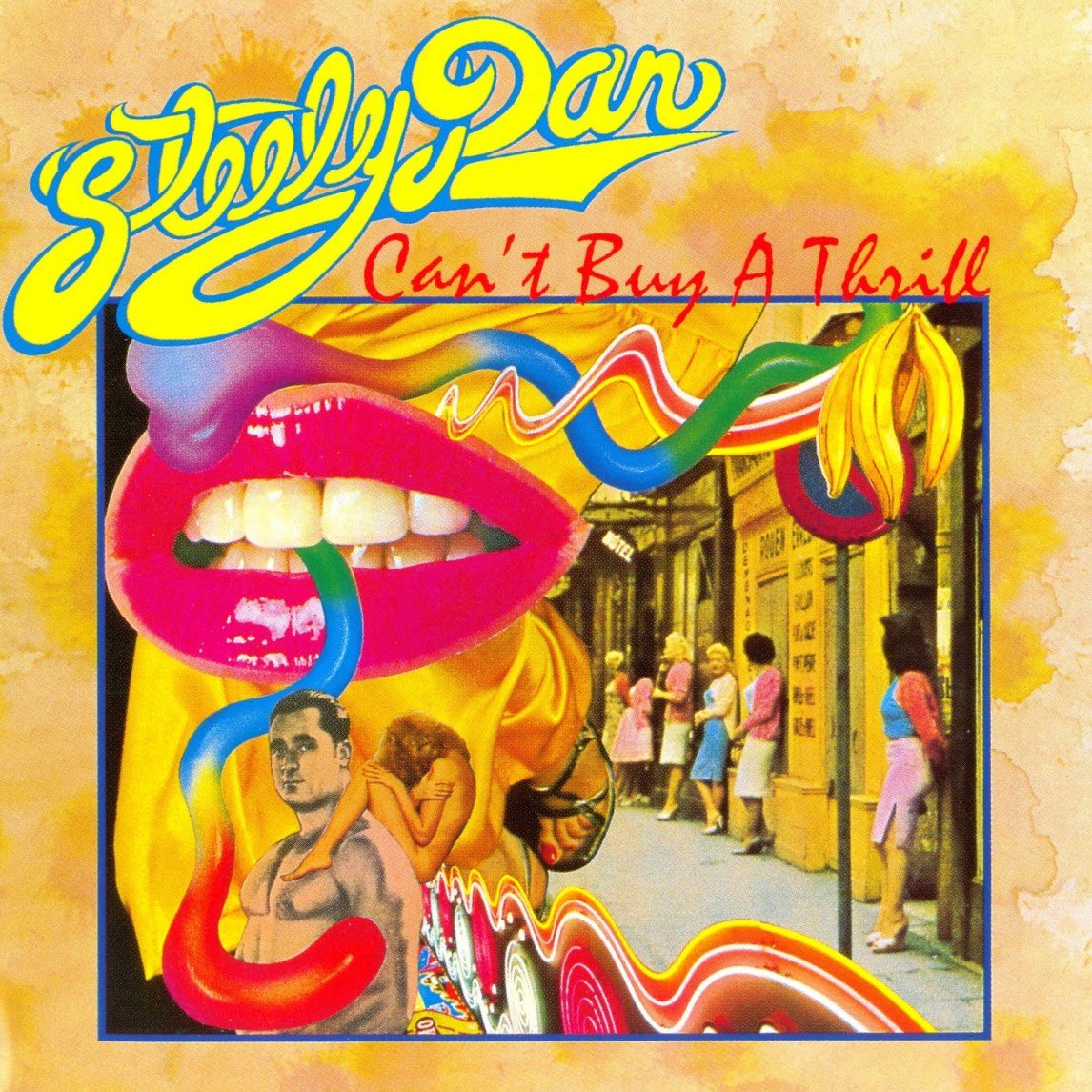Happy 45th Anniversary to Steely Dan’s sixth studio album Aja, originally released September 23, 1977.
The formative years of building my record collection surfaced from 2nd grade right up through my freshman year in high school. I recall my mother, who had a passive disdain for rock music except The Beatles and Chicago, walking into my room one afternoon while I was spinning records and skimming the latest issue of Sports Illustrated and asking me “What’s playing?” When I replied Aja by Steely Dan, she gave a nod of approval and asked to see the album cover. She studied it and handed it back to me. Little did I know that she was doing some recon work. She wanted to know what the album looked like so that she could take it from my room and play it when I wasn’t home. She liked it because it was reminiscent of the music she loved. It had the impeccable musicianship of Muscle Shoals, Motown but with a twist of jazz.
As an adult, I appreciate this album so much more than I could have as a seventh grader. Growing up hearing the Funk Brothers, Booker T. & the MG’s, Freddie Hubbard and Miles Davis in my household primed me for the sonic brilliance that is Steely Dan’s Aja.
One of the many signature qualities of this album is that it is impeccably produced, a fact that has garnered both praise and condemnation. Admittedly, I’ve always found it silly to criticize a band for being too proficient at their job. Walter Becker, Donald Fagen and crew ease you into Aja with “Black Cow,” a song about a man who grows fed up with his lover’s pill addiction and continuous infidelity. Confession time. I didn’t know that until last year. 12-year-old Terry did not catch that. And now, in my older years, I appreciate that the beauty of Steely Dan’s music is found in its sonic flawlessness enveloping sharp and intelligent lyrics.
Ian Dury once said of this album, "Well, Aja's got a sound that lifts your heart up… and it's the most consistent up-full, heart-warming…even though, it is a classic L.A. kinda sound. You wouldn't think it was recorded anywhere else in the world. It's got California through its blood, even though they are boys from New York. It's a record that sends my spirits up, and really when I listen to music, really that's what I want.”
The title track is the antithesis of what should be on a rock album. Then again, is this a rock album? The nearly eight-minute opus has been described by Fagen as being about "tranquility that can come of a quiet relationship with a beautiful woman."
Listen to the Album:
“They got a name for the winners in the world / I want a name when I lose / They call Alabama the Crimson Tide / Call me Deacon Blues.” There are song lyrics that make you scream, “Damn, I wish I wrote that.” A prime example are the lyrics to “Deacon Blues,” one of those songs that’s easily quotable and just stays with you forever. The name “Deacon” was influenced by Hall of Fame football player Deacon Jones. Fagen and Becker’s ode to underdogs clocks in at 7:36, but feels like a four-minute song that you wished lasted longer. Fagen’s inspiration came from his thought that “if a college football team like the University of Alabama could have a grandiose name like the 'Crimson Tide,’ the nerds and losers should be entitled to a grandiose name as well." It may the coolest nod to geeks that I know of.
“Peg,” which is the most well-known track on the album, is in a class by itself. It’s also the song that took forever to complete. The band went through seven studio guitarists to find the right sound on the guitar solo before settling on Jay Graydon’s version. Detractors will point to this fact as not letting a moment happen organically, but I would argue that it made a good song great. Having Fagen’s lead vocal mix with Michael McDonald singing background made it even better. “Peg” is the middle point of Aja and ensures that the album has already exceeded expectations before you even listen to the latter half. The interesting thing about this song is that Becker did not play bass on it. Those duties were handed to veteran session player Chuck Rainey.
After playing this album again and finding out who actually played on it, I realized that Aja was a vision and concept that Fagen and Becker conjured up. Arguably, they reignited the idea of the producer as the star or the director of many to create a vision. Accomplished musicians like Steve Gadd, Joe Sample, Larry Carlton and Tom Scott to name a few contributed to this album.
Enjoying this article? Click/tap on the album covers to explore more about Steely Dan:
Once you get to “Home at Last” and “Josie,” you realize that something truly special happened during the recording of Aja. A rock band named Steely Dan made a jazz album that masqueraded as a rock album, and the results are glorious. A smartly crafted, well-produced album does not equate to selling out or being soft. Their sound may not be for everybody, but it works for me.
Aja, despite its detractors, is one hell of an album that demands not just one play, but multiple spins. Aja makes you think. It compels you to listen again and again, as you continually uncover new elements and flourishes you hadn’t heard before. Great albums make you want to come back for more. And Aja is a great album.
LISTEN:
Editor's note: this anniversary tribute was originally published in 2017 and has since been edited for accuracy and timeliness.





